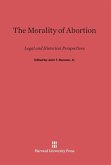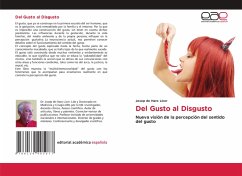Taste, which is already constructed in the first school of the human being, which is gestation, will be remodeled by the family and the environment. It is therefore impossible to construct taste without taking these parameters into account. Influences during gestation, during family life, from the environment and from the person himself, influence taste perception. Current neuroscience allows us to know details about the functioning of the sense of taste.The concept of taste explained to date is part of an unfinished knowledge, which is far from what really happens. Taste is constructed from many aspects and is evidently educable, which means that not only the "palatability" of taste is educated, but also the action that derives from its links with other areas and brain functions, such as those of disgust, justice, morality, etc.This book shows the "multidimensionality" of taste with the phenomena that accompany it to really teach us what taste perception is all about.
Bitte wählen Sie Ihr Anliegen aus.
Rechnungen
Retourenschein anfordern
Bestellstatus
Storno








